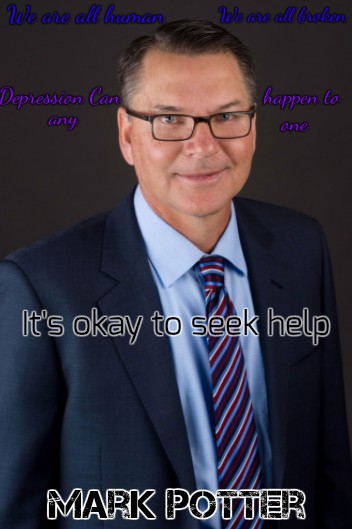Mark Potter’s speech: Plus How Your Brain Works When Your Depressed

November 11th, 2019, Mark Potter shared his story with his battle against depression to McPherson High School. He and his wife talk about his struggle. They hope to help and inspire others who may be going through a similar situation.
Mark Potter was a teacher and a basketball coach for 30 years. 5 years in a row, he was named the best coach of the year, and is considered to be one of the most influential people in the Wichita sports.
He said he knew he was depressed when he didn’t want to do anything he used to enjoy, including going to work. He loved his job. He lost 30 pounds in month or so. He hid when he was crying, as he didn’t want anyone to know. He was a victim of the “Silent Epidemic”. When his wife realized what was going on, she called every doctor and therapist that would accept their insurance. He tried to refuse to go. Until his wife made it clear she wasn’t messing around. He was later diagnosed with depression.
Sadness V.S. Depression
Depression isn’t just excessive sadness. Sadness isn’t an unusual emotion to feel. Everyone feels sad at some point. Generally sadness has a rational cause and usually that caused happened recently. But eventually that feeling of sadness will go away. As with depression the feeling won’t just go away.
As depression is different for everyone. It may cause; loss or gain of appetite/weight, low self esteem, feeling worthless or hopeless and guilty for no apparent reason, agitation, little to no sleep, or too much sleep, thoughts or actions of self harm that may or may not be portraying suicide, lack of interest usually found in activities you once enjoyed, and much more.
Please, if you experience any of those tell someone, get help. Start out by telling a close friend or someone you trust, then if it progresses even just a little bit tell your doctor, therapist, or even your school counselor. But do not self diagnose, as many self diagnostics can lead to more problems down the road.











